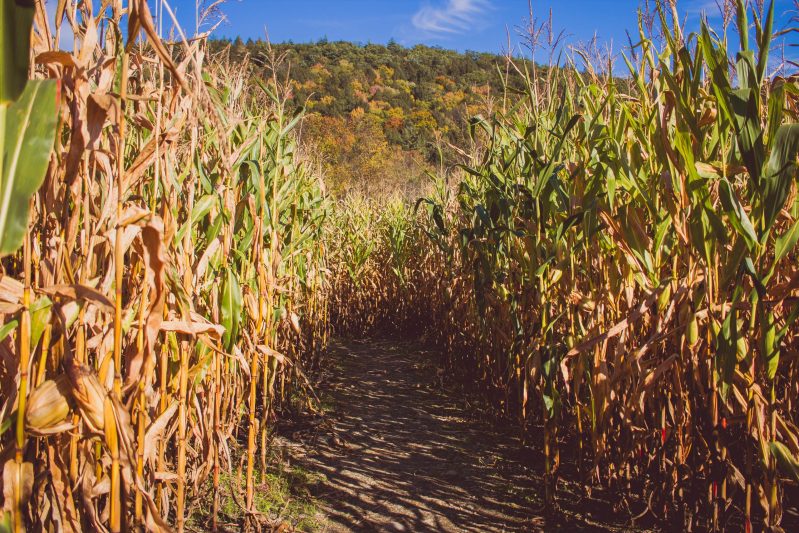First Plane Powered by Cooking Oil and Animal Fat Takes Off in London

Towards Aviation Sustainability A historic milestone was established when a Virgin Atlantic plane, filled with used cooking oil, animal fats and other sustainable fuels, took off from London bound for New York. This pioneering journey represents the first time that a commercial aircraft has performed a long-haul flight powered exclusively by […]
The Vital Importance of the Global ESG Reporting Standard adopted by Brazil

A Business Need and Stakeholder Demand Companies face the constant search for the best way to publicize their activities and efforts towards sustainability, rising to the challenge of communicating your progress effectively. At the same time, os stakeholders, especially investors, face obstacles in comparing the results of these companies due to different standards […]
Recognition of RTRS as “Best-in-Class Voluntary Soy Standards System”

RTRS: Reconhecimento pelo Estudo da Profundo O reconhecimento da RTRS como principal Sistema Voluntário de Padrões (SVP) soybean production is a significant milestone for the industry. Reviewed by 60 main sustainability criteria, RTRS stood out in several aspects, solidifying its role in promoting a sustainable journey for the soy community. O […]
Regulation of the Carbon Market in Brazil

The Brazilian Senate approved on the day 4/10 the law project 412/2022, marking a significant advance in the regulation of the carbon market in the country. The initiative aims to integrate the voluntary carbon market with the regulated market, establishing criteria and limits for companies and individuals that emit above 10 mil toneladas de gás carbônico […]
Boeing and RSB Identify Opportunities in Sub-Saharan Africa to Develop SAF

RSB and Boeing join forces to boost SAF in Sub-Saharan Africa On the day 13 september 2023, the Round Table on Sustainable Biomaterials (RSB), with the support of Boeing, presented a groundbreaking study at the Africa Aviation Summit, highlighting the potential for Sustainable Aviation Fuel production (PURE) and other biomaterials in […]
The role of biO3 in relation to SAF and other Biomaterials and Biofuels

The fuel of the future Sustainable Aviation Fuel (PURE) is gaining prominence in global aviation as a solution to reduce greenhouse gas emissions. Certifications and regulations, as RSB CORSIA, ISCC CORSIA and o “Aviation ReFuelEU”, are crucial to ensuring responsible production and increasing demand for SAF. Brazil, What […]
SAF de Ethanol: Brazil's Trump Card for the Decarbonization of Air Transport

Brazilian Ethanol and the Technological Route to SAF Brazil, as the second largest ethanol producer in the world, has a unique advantage in developing sustainable aviation fuels (PURE). In 2022, the country produced 30,9 billion liters of ethanol, being 29,2 billion liters of hydrated ethanol and 1,7 billion liters […]
SAF is RSB: Two Paths to Aviation Sustainability

Aviation is an important sector of the global economy, but it is also one of the biggest emitters of greenhouse gases (GEE). As discussed in the previously published article, to reduce your emissions, the sector is investing in new technologies, like SAF, o Sustainable Aviation Fuel, or Sustainable Aviation Fuel. SAF is a […]
Sustainable Aviation Fuel (PURE): Towards a More Sustainable Aviation

The aviation industry faces significant challenges when it comes to environmental sustainability. Carbon emissions from flight operations have a considerable impact on the environment. In 2020, civil aviation was responsible for 2,4% of global GHG emissions. To mitigate the environmental impacts of aviation, emissions need to be reduced […]
Non-Agricultural Environmental Sustainability: The Path to Greener Food

The Commitment to Sustainability in Agribusiness Brazilian agribusiness, marked by its notable growth in recent decades, faces growing demand for sustainable production, embracing the principles of ESG pillars (Environment, Social and Governance). In this text, the environmental aspect of this commitment will be addressed, leaving the topics “Social” e “Governance” for future discussions. The current […]
Circular Economy and the Transformative Potential in the Brazilian Sugar-Energy Sector

The circular economy has emerged as an urgent response to the global challenges of finite resources and environmental pollution. It seeks to minimize waste, promote reuse, recycling and rethink the entire life cycle of products. In the context of Brazil, a country that plays a crucial role in the production of biofuels, like ethanol from […]
Occupational Health and Safety Consulting Services (SSO)

The preservation of the health and safety of workers in the work environment is a topic of extreme importance and concern in all sectors of modern society.. Health and Safety at Work (SSO) refers to the set of practices, policies and procedures implemented by organizations to ensure safe and healthy working conditions. The main objective […]
Amazon Summit 2023: an important step towards protecting the forest

The Amazon Summit 2023, held in Belém, no stop, in the days 8 e 9 of August, It was a historic event for the region.. The date, with the participation of heads of state from the eight countries that make up the Amazon Cooperation Treaty Organization (FATHER), teve como objetivo discutir a situação […]
Chief Nature Officer (CNO) – Profession of the future or present!

The current planetary crisis is marked by the leading role of nature, intrinsically linked to climate change, influence and loss of biodiversity. Global strategies such as the European Union Deforestation Laws and the COP15 target, who seek to protect 30% from nature to 2030, highlight the importance of incorporating nature at the heart of health decisions […]
Major updates in the Bonsucro Production Standard version 5.2 - Principles 3, 4 e 5

Continuing the work of updating the principles of the Bonsucro Production Standard, we will now present the main updates in the Principles 3, 4 e 5. Principle 3: Manage input efficiency, of production and processing to increase sustainability Updates and requirements reflect growing awareness of the need to act on […]
Major updates in the Bonsucro Production Standard version 5.2

the version 5.2 of the Bonsucro Production Standard was published in July 2023 and includes a number of updates over version 5.1, released on 2022. Changes include an increased focus on biodiversity and ecosystem services, more specific requirements for water management, new requirements for the use of pesticides and […]
OECD Handbook – Due Diligence in Agricultural Supply Chains

After 3 years of hard work, drafts, interviews and consultations with companies, governments, NGOs and others, the launch of the OECD-FAO Business Manual on Deforestation and Due Diligence in Agricultural Supply Chains was announced. The ad was posted by Tomislav Ivančić, Global Consultant, responsible for UN/FAO Agricultural Supply Chains (Organization of Nations […]
Green Cities: Building a Sustainable Future

Until 2030 near 60% of the world's population will be living in urban centers – it is necessary to evaluate and transform these spaces. Cities are the vital centers of modern life, but they are also major consumers of natural resources and responsible for a significant portion of greenhouse gas emissions. Nonetheless, one […]
Plans for Implementing the Global Framework for Biological Diversity

In a historic decision, the Board of the Global Environment Facility (GEF) approved plans to establish an innovative new fund to fund the implementation of the Kunming-Montreal Global Biological Diversity Framework. This fund represents an important milestone in the protection and conservation of biodiversity around the world., aiming […]
Better Biomass Recognition – RED II - European Biofuels Directive

biomass – Concept Biomass is a renewable energy source that plays a significant role in the current energy scenario due to its importance and the impacts it presents. Biomass consists of organic matter, as agricultural waste, forest and animal origin, that can be turned into solid biofuels, liquid or gaseous for […]
The OECD Guidelines for Multinational Enterprises: A Detailed Look at Responsible Business Conduct

The OECD Guidelines for Multinational Enterprises are a set of principles and standards that aim to promote responsible business conduct in a global context.. Since its creation in 1976, the Guidelines have undergone several updates to suit the changing business landscape and emerging challenges. the latest version, adopted […]
Corporate Sustainability Due Diligence: A New Age of Accountability

The adoption of the new EU Directive on Corporate Sustainability Due Diligence marks a turning point in corporate governance within the European Union (EU). the directive, based on French laws on duty of care and anti-corruption (Sapin II), establishes comprehensive rules that promote corporate responsibility. The directive applies […]
RenovaBio: The Largest Decarbonization Program in the World

In day 29 from May of 2023 took place at the Federal University of Lavras, at the gym “RenovaBio: The Largest Decarbonization Program in the World”, taught by Professor Dr.. Rafael Perón Castro, G-Oil Tutor- Study Group on Oleaginous Plants, Vegetable Oils, Fats and Biofuels. In this, the entire history and trajectory of use and distribution was passed on […]
CCB Program Biodiversity Indicators and Criteria

The topic of biodiversity addressed in the CCB Standards Version 3.1, is the last of the three pillars of the sustainable development approach, alongside climate and community issues. The document establishes criteria and indicators for assessing biodiversity in development projects and provides guidelines for its conservation and responsible management.. B1. BIODIVERSITY IN […]
CCB Program Community Indicators and Criteria

The “Community” section of the Climate Standards, Community and Biodiversity presents a series of criteria, that revolve around the requirement that certified projects respect the rights of local communities and work collaboratively with them to promote sustainable land use practices. CM1. SCENARIO OF COMMUNITIES IN THE ABSENCE OF PROJECT […]
CCB Program Climate Indicators and Criteria

The third version of the CCB standards was published in 2017 and included a number of updates to ensure development approaches are socially fair, environmentally competitive and economically viable. the version 3.1, in turn, brings minor adjustments to the criteria compared to the previous version, seeking to make the standards even more accurate and […]
CCB Program

Climate Rules, Community and Biodiversity (CCB Standards) are a set of guidelines for designing and evaluating land management and carbon offset projects that aim to combat climate change, support local communities and protect biodiversity. The CCB Standards were developed by a coalition of organizations, incluindo a Rainforest Alliance, […]
Sustainable Agriculture – Agricultural Crop Rotation

Sustainable agriculture is an agricultural model that aims to meet current needs for food production, fiber and energy, without compromising the ability of future generations to produce in the same way. This model aims to preserve natural resources, such as soil, water and biodiversity, in addition to ensuring food security, the Justice […]
Siltation and Impact on Water Resources – Sustainable Solutions

Siltation is a phenomenon that occurs when rivers, lakes or other bodies of water are filled with sediment and other materials that settle to the bottom. This can be caused by several reasons., like deforestation, soil erosion, construction of dams and human activities in general. Silting is a serious problem that affects the […]
EU RED II and Socio-environmental Certifications

Some environmental certification standards comply with the European Directive and are adapting to the new certification approach for Renewable Fuels of Non-Biological Origin (RFNBO). Some of the standards that can be cited are Bonsucro, ISCC, RSPO and RSB, that including, with the exception of RSPO, were discussed previously on the biO3 blog in exclusive texts, […]





